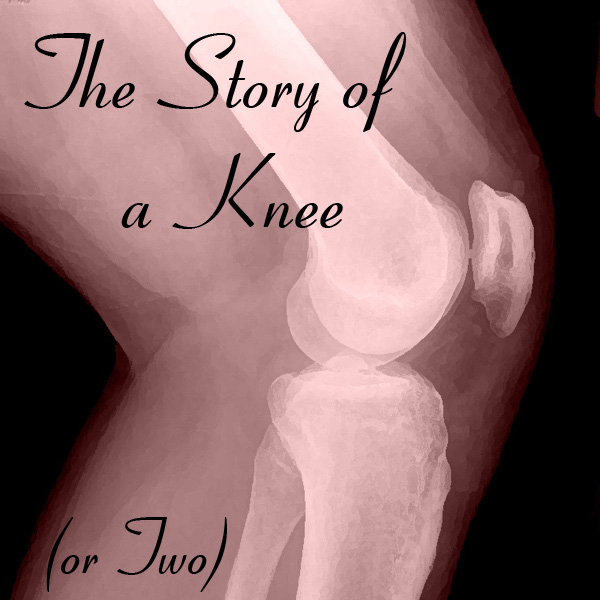I have sciatic neuropathy down both sides of my lower left leg. For me that means I don't feel my foot from my ankle down. I've likened it to my foot being asleep, only the nerves never wake up.
It was fifteen weeks after surgery when the surgeon finally said I could start to transition out of the walking boot into sneakers with a lift. I was ecstatic until I discovered another side effect of the neuropathy. Since I can't feel the ball of my foot I roll my ankle as my brain searches for a position that feels secure. The end result is that my ankle is constantly swollen and in severe pain and my gait has become so slow tourists in Times Square move more quickly then I can. I continue to be fearful of causing damage, but when I emailed a photo to my surgeon and asked about wearing some sort of brace I was told that he did not want me constricting the ankle. So my mobility and ability to live my daily life has been severely compromised as even simple things like walking to the kitchen to feed the cats causes pain and my ankle has taken to permanently resembling a softball.
I have had many people tell me to sue, I may be naive, but I don't like how litigious our society has become. It bothers me that people seem to think they should get rich because someone else screwed up. I am not looking for some huge payout. I simply want enough to cover my out of pocket expenses related to trying to care for and rectify this injury created during my surgery.
I am not looking for compensation for pain and suffering or even lost income. I have made, have been forced to make, the decision that my primary job for the next year is working to convince my nerves to find a path to connect my foot to my brain. I need to make every effort to insure that this is not a permanent disability.
I want the opportunity to discuss this with someone. I have left multiple messages with the Beth Israel Patient Representatives Office, but never heard back, leaving me to write this letter in hopes that someone will finally respond.
Thank you.
Erika Clark
I can pinpoint exactly when this started, Monday, January 23, 2012. The day I went in to Beth Israel Medical Center in Union Square to have outpatient achilles repair surgery. I had spent much of the previous year trying to stay out of the operating room. I had been diagnosed with micro-tears and had been in severe pain for a few months before I was finally able to schedule an appointment with a foot and ankle surgeon (I won't go in to the hoops involved in simply finding a specialist who takes my insurance). I had done everything I could to keep from going under the knife, I had heard stories from many people about how long the achilles can take to repair, however, no one had mentioned neuropathy as a side effect.
After being in severe pain over Christmas and spending my birthday at the doctor's office I finally conceded the need for surgery. So very early on the morning of January 23rd I found myself taking the subway to Union Square with my rented knee-walker and checking in for surgery. That morning I met the anesthesiologist who told me he would put me to sleep and then give me a popliteal sciatic block, otherwise known as a nerve block behind my knee. And the trouble began.
I wasn't in much pain post-surgery, which probably should have been a sign. On my post-surgery diary I begin commenting on numbness in my leg on January 30th and had emailed my surgeon's PA. By February 7th I was referring to it as neuropathy and commenting that my surgeon was "surprised". It continued to be one of my top concerns at post-surgery appointments until March when the surgeon finally conceded to my seeing a neurologist. He recommended one at Beth Israel - I made an appointment with one at Hospital for Special Surgery.
And here we are, I have had an EMG (Electromyogram) showing definite neuropathy (an MRI of the lower sciatic nerve is scheduled for later this week). Both the surgeon and the neurologist have said that the best case scenario is that the nerves re-establish feeling in a year. And the only treatment option - physical therapy (PT).
So, why this letter? What do I hope to accomplish? My physical therapists office is reporting that my insurance is beginning to limit and deny the number of sessions I can have. While I am one of the fortunate self-employed who can afford insurance, being self-employed and limited in my ability to work when I can barely walk means I do not have the money needed to pay for PT and other treatment options out of pocket.
I am not looking for compensation for pain and suffering or even lost income. I have made, have been forced to make, the decision that my primary job for the next year is working to convince my nerves to find a path to connect my foot to my brain. I need to make every effort to insure that this is not a permanent disability.
I want the opportunity to discuss this with someone. I have left multiple messages with the Beth Israel Patient Representatives Office, but never heard back, leaving me to write this letter in hopes that someone will finally respond.
Thank you.
Erika Clark

